Microbiology
The RCPAQAP Microbiology discipline has been developed and evolved under the guidance of the RCPAQAP Microbiology Advisory Committee.
Within this discipline, a Molecular Infectious Diseases sub-committee further guides the development of proficiency testing programs for molecular diagnostics.
Are you outside Australia?
Find your local distributorBacterial Serotyping
Catalogue Number
12010102Frequency (No of surveys/year)
2Cases/samples per survey
6Sample Type
Lyophilised sampleSample volume
1mLSchedule
February, JulyMeasurand/Test
Serotyping of Streptococcus pneumoniae, Haemophilus influenzae, Neisseria meningitidisStorage and Handling
Upon receipt, store samples at 2-8°C and protect from direct light. Testing within 24-48 hours is recommended to reduce the risk of sample deterioration.Dangerous Goods (UN3373)
This survey material was packed in compliance with IATA PI.650 for Biological Substance Category B, UN 3373Product details last updated on August 31, 2023
Bacteriology: Blood Culture Isolates
Catalogue Number
12020102Frequency (No of surveys/year)
4Cases/samples per survey
1Sample Type
Lyophilised sampleSample volume
1mLSchedule
February, April, July, OctoberMeasurand/Test
Blood Culture IsolatesStorage and Handling
Upon receipt, store samples at 2-8°C and protect from direct light. Testing within 24-48 hours is recommended to reduce the risk of sample deterioration.Dangerous Goods (UN3373)
This survey material was packed in compliance with IATA PI.650 for Biological Substance Category B, UN 3373Product details last updated on August 31, 2023
Bacteriology: Faecal Pathogens
Catalogue Number
12030102Frequency (No of surveys/year)
4Cases/samples per survey
2Sample Type
Lyophilised sampleSample volume
1mLSchedule
February, April, July, OctoberMeasurand/Test
Faecal PathogensStorage and Handling
Upon receipt, store samples at 2-8°C and protect from direct light. Testing within 24-48 hours is recommended to reduce the risk of sample deterioration.Dangerous Goods (UN3373)
This survey material was packed in compliance with IATA PI.650 for Biological Substance Category B, UN 3373Product details last updated on May 24, 2023
Bacteriology: Genital Swabs
Catalogue Number
12040102Frequency (No of surveys/year)
4Cases/samples per survey
1Sample Type
Lyophilised sampleSample volume
1mLSchedule
February, April, July, OctoberMeasurand/Test
Genital PathogensStorage and Handling
Upon receipt, store samples at 2-8°C and protect from direct light. Testing within 24-48 hours is recommended to reduce the risk of sample deterioration.Dangerous Goods (UN3373)
This survey material was packed in compliance with IATA PI.650 for Biological Substance Category B, UN 3373Product details last updated on May 24, 2023
Bacteriology: Mycobacteriology Acid Fast Smears
Catalogue Number
12050102Frequency (No of surveys/year)
4Cases/samples per survey
2Sample Type
Fixed unstained smear on glass slideSample volume
n/aSchedule
March, June, September, NovemberMeasurand/Test
Acid Fast bacilliStorage and Handling
Upon receipt, store samples at room temperature and protect from direct light. Testing within 24-48 hours is recommended to reduce the risk of sample deterioration.Product details last updated on May 24, 2023
Bacteriology: Mycobacteriology Culture
Catalogue Number
12060102Frequency (No of surveys/year)
4Cases/samples per survey
2Sample Type
Lyophilised sampleSample volume
1mLSchedule
March, June, September, NovemberMeasurand/Test
Mycobacteriology CultureStorage and Handling
Upon receipt, store samples at 2-8°C and protect from direct light. Testing within 24-48 hours is recommended to reduce the risk of sample deterioration.Dangerous Goods (UN3373)
This survey material was packed in compliance with IATA PI.650 for Biological Substance Category B, UN 3373Product details last updated on May 24, 2023
Bacteriology: Nose/Throat Pathogens
Catalogue Number
12070102Frequency (No of surveys/year)
4Cases/samples per survey
1Sample Type
Lyophilised sampleSample volume
1mLSchedule
March, June, September, NovemberMeasurand/Test
Nose/Throat PathogensStorage and Handling
Upon receipt, store samples at 2-8°C and protect from direct light. Testing within 24-48 hours is recommended to reduce the risk of sample deterioration.Dangerous Goods (UN3373)
This survey material was packed in compliance with IATA PI.650 for Biological Substance Category B, UN 3373Product details last updated on May 24, 2023
Bacteriology: Respiratory Pathogens
Catalogue Number
12080102Frequency (No of surveys/year)
4Cases/samples per survey
2Sample Type
Lyophilised sampleSample volume
1mLSchedule
February, April, July, OctoberMeasurand/Test
Respiratory Pathogens, Antimicrobial susceptibility testingStorage and Handling
Upon receipt, store samples at 2-8°C and protect from direct light. Testing within 24-48 hours is recommended to reduce the risk of sample deterioration.Dangerous Goods (UN3373)
This survey material was packed in compliance with IATA PI.650 for Biological Substance Category B, UN 3373Product details last updated on May 24, 2023
Bacteriology: Skin/Eye/Ear Pathogens
Catalogue Number
12090102Frequency (No of surveys/year)
4Cases/samples per survey
1Sample Type
Lyophilised sampleSample volume
1mLSchedule
March, June, September, NovemberMeasurand/Test
Skin/Eye/Ear Pathogens, Antimicrobial susceptibility testingStorage and Handling
Upon receipt, store samples at 2-8°C and protect from direct light. Testing within 24-48 hours is recommended to reduce the risk of sample deterioration.Dangerous Goods (UN3373)
This survey material was packed in compliance with IATA PI.650 for Biological Substance Category B, UN 3373Product details last updated on May 24, 2023
Bacteriology: Urine
Catalogue Number
12100102 (1mL) / 12490102 (5mL)Frequency (No of surveys/year)
4Cases/samples per survey
2Sample Type
Lyophilised sampleSample volume
1mL or 5mL optionSchedule
March, June, September, NovemberMeasurand/Test
Urine cell counts (manual and/or automated methods), Bacterial count, Urine pathogens, Antimicrobial susceptibility testingStorage and Handling
Upon receipt, store samples at 2-8°C and protect from direct light. Testing within 24-48 hours is recommended to reduce the risk of sample deterioration.Dangerous Goods (UN3373)
This survey material was packed in compliance with IATA PI.650 for Biological Substance Category B, UN 3373Product details last updated on May 24, 2023
Bacteriology: Wound Anaerobes
Catalogue Number
12110102Frequency (No of surveys/year)
4Cases/samples per survey
1Sample Type
Lyophilised sampleSample volume
1mLSchedule
February, April, July, OctoberMeasurand/Test
Aerobic organisms, Anaerobic organisms, Antimicrobial susceptibility testing (aerobes)Storage and Handling
Upon receipt, store samples at 2-8°C and protect from direct light. Testing within 24-48 hours is recommended to reduce the risk of sample deterioration.Dangerous Goods (UN3373)
This survey material was packed in compliance with IATA PI.650 for Biological Substance Category B, UN 3373Product details last updated on May 24, 2023
Clostridioides difficile: Laboratory Detection
Catalogue Number
12120102Frequency (No of surveys/year)
2Cases/samples per survey
4Sample Type
Lyophilised sampleSample volume
2mLSchedule
July, NovemberMeasurand/Test
Detection of Clostridium difficile– culture, antigen and toxinStorage and Handling
Upon receipt, store samples at 2-8°C and protect from direct light. Testing within 24-48 hours is recommended to reduce the risk of sample deterioration.Dangerous Goods (UN3373)
This survey material was packed in compliance with IATA PI.650 for Biological Substance Category B, UN 3373Product details last updated on May 24, 2023
